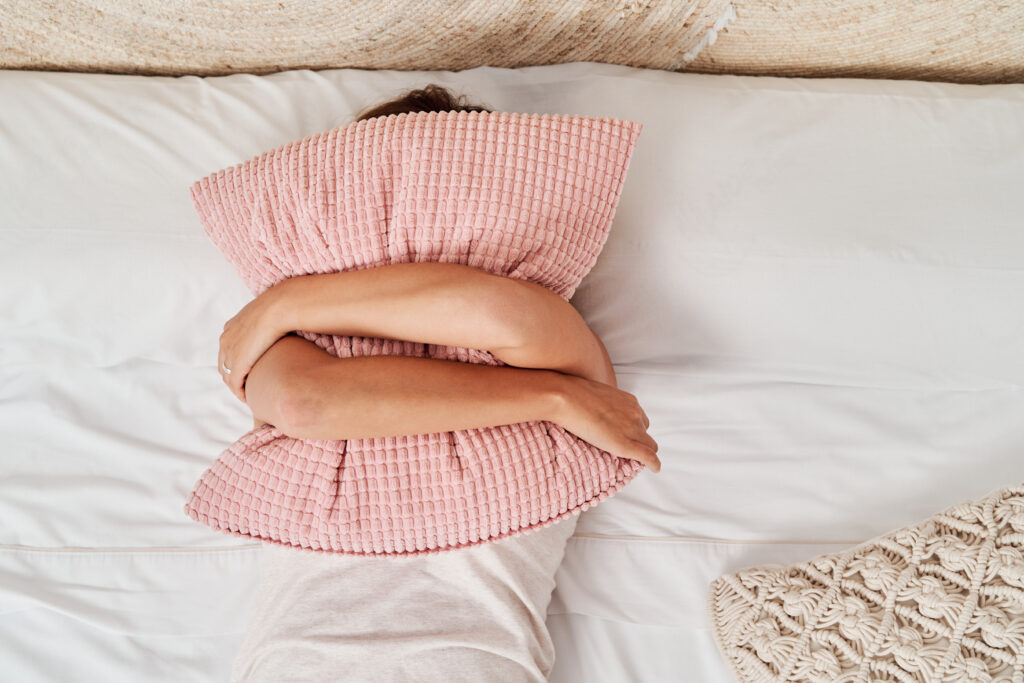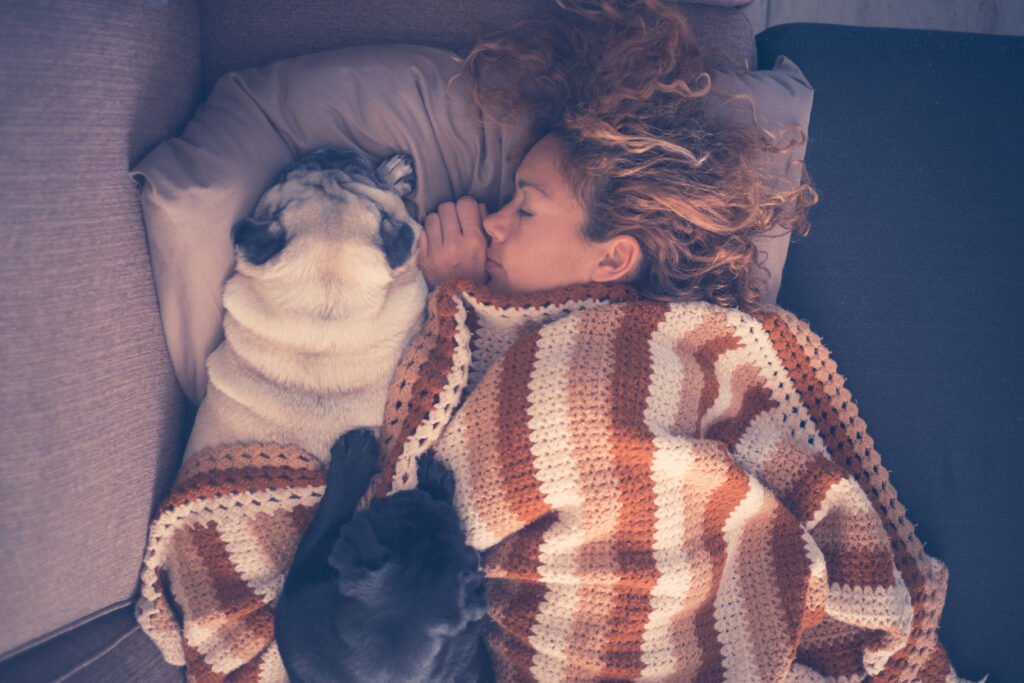Climbing into bed after a long day is one of the best experiences. That is, until we toss and turn for hours; watching the clock tick away while we calculate how many hours of sleep we will get before our alarm clock brings us back to reality. Sound familiar?
Then there are the times when our zzz’s come a little too easily; when we start nodding off on the train or in a meeting.
Not getting the right amount – or right kind – of sleep can have a huge impact on our overall health, from immunity to heart function, and even longevity. And it’s only relatively recently that a growing body of research is emerging around how sleep affects our wellbeing.
So, is there a magic number of hours of sleep everyone should be getting? That depends.
“The amount of sleep we need varies depending on individual factors, such as age, habit and lifestyle,” says health and wellness expert, Dr Vincent. “In general, to function properly we need six to eight hours.”
Many experts are now also suggesting a minimum of seven hours of sleep per night for adults over 18.
Why? Because our bodies restore themselves while we slumber.
“The body repairs and rejuvenates tissues, muscles, and cells, helping to maintain overall physical health,” Dr Vincent explains. “Sleep also plays a crucial role in cognitive functions such as memory consolidation, learning, attention, problem-solving, and decision-making.”

How our sleep needs change with age
People of different ages require different hours of sleep. This is due to physiological functions, developmental processes, and lifestyle demands. For example, when we are younger, the body needs more sleep as it is developing, and cyclically, at the post-retirement stage, sleep needs go up again. But how we sleep changes too – for example, people in their 60s or 70s often tend to go to sleep earlier, but also wake up earlier, which can be due to biological processes.
Some of the factors that influence an individual’s sleep needs include:
Growth and development
“Infants, children, and teenagers require more sleep because their bodies and brains are still developing,” says the doctor. “It plays a crucial role in supporting growth, brain maturation, and cognitive development during these stages.”
Hormonal changes
“Hormones play a role in regulating sleep-wake cycles,” he says. “During adolescence, hormonal changes occur, leading to a shift in the circadian rhythm, making teenagers naturally inclined to stay up later and wake up later. This can result in a need for more sleep to meet their physiological needs.”
Similarly, when one goes through menopause or perimenopause, symptoms like hot flashes, as well as anxiety and other changes have an impact on sleep – essentially, you start sleeping more poorly.
Energy expenditure
“Younger individuals, such as children and teenagers, tend to have higher energy expenditure due to physical activity, growth, and learning demands,” the health and wellness expert says. “More sleep is needed to replenish energy levels and support their active lifestyles.”
Sleep architecture
“As we age, there are changes in sleep architecture, including a decrease in deep sleep and a higher likelihood of experiencing disruptions,” Dr Vincent explains. “Older adults may find it more challenging to maintain consolidated sleep and may require slightly fewer hours overall.”
Lifestyle factors
“Older adults may have different lifestyle demands, such as retirement, caregiving responsibilities, or medical conditions, which can affect sleep patterns,” he says. “Work and social commitments may be another influence for adults of all ages.”

How does insufficient sleep affect us?
Not getting enough zzz’s can have a detrimental effect on both our mind and body, says Dr Vincent. Insufficient sleep affects our:
- Cognitive function and performance: including memory, attention span and problem-solving abilities.
- Moods and emotional well-being: leading to increased irritability, mood swings, anxiety and depression.
- Impaired judgment and decision-making: leading to poor decision-making and increased risk-taking behaviour.
- Physical health: can lead to obesity, diabetes, heart disease, weakened immune system, hormone changes, and high blood pressure.
How to fall asleep quickly
If you can’t stop tossing and turning, here are some strategies from Dr Vincent.
Establish a consistent schedule
“Go to bed and wake up at the same time every day, even on weekends. This helps regulate your body’s internal clock and promotes better sleep.”
Create a relaxing bedtime routine
“Develop a routine that helps signal to your body that it’s time to wind down and prepare for sleep.”
Create a slumber-friendly environment
“Make sure your bedroom is cool, dark, quiet, and comfortable. Avoid using screens (such as smartphones, tablets, or computers) for at least an hour before bed.”
Review your diet
“Try to ensure you are eating healthy food and drinking enough water during the day. Use high quality supplements if your diet is not the best; things like fish oil, activated phenolics, and activated saffron. Avoid stimulating substances: Limit or avoid caffeine, nicotine, and alcohol, especially close to bedtime.”
Engage in regular physical activity
“Regular exercise can promote better sleep, but try to avoid intense exercise close to bedtime, as it may stimulate your body and make it harder to fall asleep.”

What is considered oversleeping?
You know the saying, you can have too much of a good thing.
“Excessive sleep can affect our body negatively, such as grogginess, reduced focus, mood disturbance and sleep disorders,” says Dr Vincent.
“Usually, if you are groggy or sleepy even when you think you have had enough zzz’s, you may be sleeping too much,” he adds. “Mood swings and low motivation are other signs that your sleeping cycle is not optimal.”
If you think you are overlseeping, there are a few things you can do.
“Review your daily habits, including your slumber routine, what you eat and your stress levels,” Dr Vincent says. “Talk to your GP as it may be caused by some underlying conditions.”



